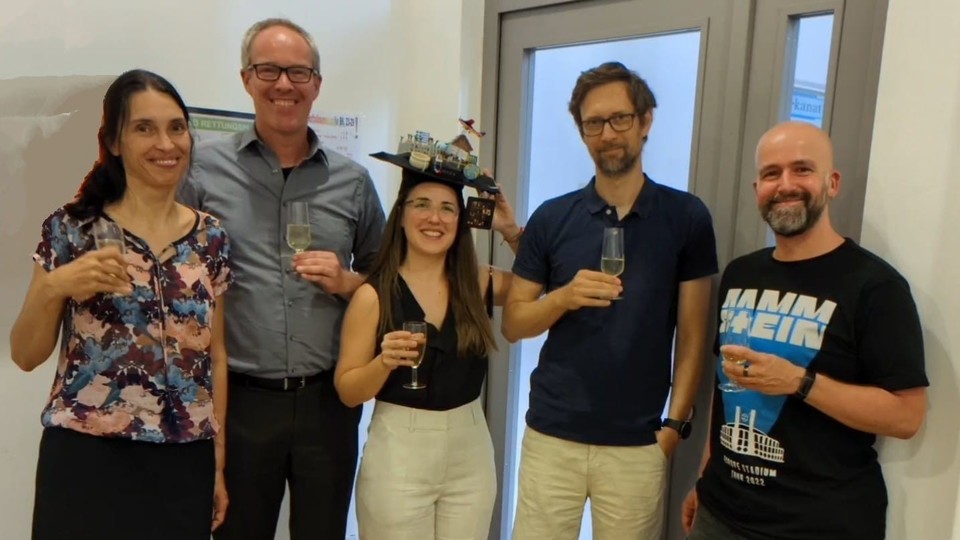The key contributions of the theses are threefold: Dr. Anna Primpeli developed a set of profiling dimensions for grouping entity matching tasks which pose similar challenges to matching methods. Second, she investigated the adoption of schema.org annotations on the Web and proved the utility of schema.org annotations as distant supervision for learning product matchers. Finally, Dr. Primpeli proposes a novel method for the unsupervised bootstrapping of active learning workflows for entity matching as well as novel query strategies which consider the specific characteristics of multi-source entity matching tasks for selecting record pairs for labeling.
The examination committee consisted of Prof. Margret Keuper (Universität Siegen), Prof. Heiko Paulheim, Prof. Rainer Gemulla, and Prof. Christian Bizer.
Abstract:
Entity resolution is the task of identifying records in one or more data sources which refer to the same real-world object. It is often treated as a supervised binary classification task in which a labeled set of matching and non-matching record pairs is used for training a machine learning model. Acquiring labeled data for training machine learning models is expensive and time-consuming, as it typically involves one or more human annotators who need to manually inspect and label the data. It is thus considered a major limitation of supervised entity resolution methods. In this thesis, we research two approaches, relying on distant supervision and active learning, for reducing the labeling effort involved in constructing training sets for entity resolution tasks with different profiling characteristics. Our first approach investigates the utility of semantic annotations found in HTML pages as a source of distant supervision. We profile the adoption growth of semantic annotations over multiple years and focus on product-related schema.org annotations. We develop a pipeline for cleansing and grouping semantically annotated offers describing the same products, thus creating the WDC Product Corpus, the largest publicly available training set for entity resolution. The high predictive performance of entity resolution models trained on offer pairs from the WDC Product Corpus clearly demonstrates the usefulness of semantic annotations as distant supervision for product-related entity resolution tasks. Our second approach focuses on active learning techniques, which have been widely used for reducing the labeling effort for entity resolution in related work. Yet, we identify two research gaps: the inefficient initialization of active learning and the lack of active learning methods tailored to multi-source entity resolution. We address the first research gap by developing an unsupervised method for initializing and further assisting the complete active learning workflow. Compared to active learning baselines that use random sampling or transfer learning for initialization, our method guarantees high anytime performance within a limited labeling budget for tasks with different profiling characteristics. We address the second research gap by developing ALMSER, the first active learning method which uses signals inherent to multi-source entity resolution tasks for query selection and model training. Our evaluation results indicate that exploiting such signals for query selection alone has a varying effect on model performance across different multi-source entity resolution tasks. We further investigate this finding by analyzing the impact of the profiling characteristics of multi-source entity resolution tasks on the performance of active learning methods which use different signals for query selection.
Full text:
Anna Primpeli: Reducing the Labeling Effort for Entity Resolution using Distant Supervision and Active Learning. PhD Thesis, 2022.

